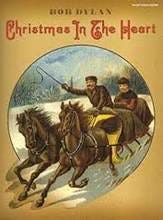Eagle-eyed readers will have spotted a couple of “thanks to Bob Jope” messages at the end of two previous articles, plus a footnote to his book-in-the-making, Bob Dylan: Voices. What was happening was that I was reading his draft chapters as he was writing them and he was doing the same for my articles.
Bob is now very generously allowing me to share one of his chapters here; I am immensely pleased and privileged to present his chapter on “Floater (Too Much To Ask)”. Official song audio:
https://www.youtube.com/watch?v=Ak8Vmwwgvb8
Floater (Too Much to Ask)
Dylan’s Jack the Lad By Bob Jope
A lot of time has been spent delving into sources for ‘Floater’ from ‘Love and Theft’, and it’s not my intention to continue excavating, though it might be helpful here and there to notice the impact of allusions as noticed in, for example, Andy Muir’s study of Shakespeare and Dylan. (1)
What interests me is the way in which Dylan’s collage of images, citations, reflections and apparent recollections amounts to another strikingly realised dramatic monologue, a coastline voice that in some ways anticipates the wandering mind of the ancient mariner at the bar in ‘Key West’, as we’ll see. A lackadaisical Huckleberry Finn, his is a voice that expresses a certain brashness, knowing and self-assured, but where the bravado might be seen, as bravado often is, as an expression of insecurity. Careless or carefree one moment, less so the next, he affects a kind of nonchalance that at times seems closer to lazy indifference, while artfully dodging hard work when it’s ‘Too Much to Ask’, the song’s original title (2), happy to go fishing instead. In short, in UK slang, something of a Jack the Lad, a confident, often irresponsible, and pleasure-seeking young man.
The original ‘Jack the Lad’ - Jack Sheppard in Newgate Prison
It's certainly an intriguing song, jump-cutting from mood to mood, from one memory or wry observation to another, but the impact is, I think, coherent, almost despite itself, as suggested by a neat summary in the on-line Untold Dylan:
The narrator, presumably a floater, an odd-jobber perhaps, is on his way to an unpleasant task; he is going to kick someone out. His reluctance makes him susceptible to distraction; on the way, light, smells, sounds and images seduce him to flee into reminiscing. (3)
The notion of being ‘susceptible to distraction’ and fleeing into ‘reminiscing’ captures the monologue’s mood and manner, a stream - of- consciousness daydream, as the voice we hear wanders from moment to remembered moment. A series of dreams, in fact, flitting or floating from one to another.
That hazily dream-like mood is there at once as the voice, the ‘Floater’, sets his early morning scene, hymning the dawn:
Down over the window
Comes the dazzling sunlit rays
Through the back alleys—through the blinds
Another one of them endless days
Honey bees are buzzin’
Leaves begin to stir…
It's at once an aubade and another Arcadia, its prosopopoeia celebrating each delightful and delighting detail precisely imagined, or remembered: its ‘buzzin’’ bees and waking leaves beginning ‘to stir’ are a paradisal echo of an earlier song, ‘Lay Down Your Weary Tune’ with, for example, its river’s ‘winding strum…[running] like a hymn’.
John Donne’s ‘The Sun Rising’ comes to mind, too, opening with another evocation of a ‘dazzling’ sunrise, though in his case there’s anger at the sun’s nosiness, a ‘busy old fool’ disturbing him and his lover. The Floater’s response, by contrast, is an easeful, relaxed one, enjoying the busily buzzing bees and the ‘busy’ sun working its way through town’s back alleys and ‘though the blinds’, like Donne’s sun peeking ‘through windows, and through curtains’.
A young ‘Jack’ Donne, never afraid to pose
Where Donne (who, coincidentally referred to his younger self as ‘Jack’) is comically petulant, his mock-aubade wanting the sun, a ‘saucy, pedantic wretch’, to shift its gaze elsewhere, Dylan’s speaker here looks forward to ‘Another one of them endless days’ as he settles into his monologue, reminding us of that wished-for escape, catching rainbow trout at the end of ‘Sign on the Window’:
From the boat I fish for bullheads
I catch a lot, sometimes too many
Donne’s happy in bed, not wanting the sun’s interference, while our ‘Floater’ finds himself contentedly reflecting on his love-life, though how contentedly it’s not easy to say:
I’m in love with my second cousin
I tell myself I could be happy forever with her (4)
That ‘I tell myself’ is revealing. While ‘could’ suggests possibility rather than certainty, ‘I tell myself’ comes close to trying to sound confident, and though the way it’s sung has nothing of the quiet desperation of the last lines of ‘Sign on the Window’, there’s an undercurrent here that’s at odds with the breezy tone.
I wouldn’t want to push the comparison any further, except to say that it’s the unsureness here, the shaky confidence that lends the monologue life and even a kind of vulnerability, just as - as John Carey argues in his study of Donne - it’s in part the contradictoriness of Donne’s poems that lends them such energy, such dynamism. By the end of ‘The Sun Rising’, for example, Donne, realising that he can’t win and the sun won’t move away, patronisingly gives it permission to stay. As Carey writes:
This shift in the poem’s demeanour prevents it from settling into a piece of dead bravado. It has the instability of a living thing. (5)
That ‘instability’ comparably unsettles the floater’s apparent ease, his ‘bravado’, even as he settles into his story:
I keep listenin’ for footsteps
But I ain’t hearing any
From the boat I fish for bullheads
I catch a lot, sometimes too many
A summer breeze is blowing
A squall is settin’ in
Sometimes it’s just plain stupid
To get into any kind of wind
A peaceful early morning’s fishing but those footsteps disturb the mood, as does his insistent listening for them – he keeps listening - creating an unease that’s picked up on a few lines later when he tells us about his boss’s hangers-on .That unease is reinforced here by a sudden, ominous change in the weather: a summer breeze becomes a ‘squall’, a sudden, localised violent gust of wind or storm, especially one bringing rain, sleet or snow, one that’s ‘settin’ in’, close in sound to ‘settling in’, here to stay for a while. Time, then, to move on, just as the restless Floater does, telling himself in no-nonsense terms that it would be ‘plain stupid’ to stay put.
He floats, in fact, to a reflection on life as it is, the life he leads, as if to turn his thoughts away from the storm on the horizon, thinking instead about stormy relationships, first between young and old, then between workers and bosses:
The old men ’round here, sometimes they get
On bad terms with the younger men
But old, young, age don’t carry weight
It doesn’t matter in the end
That stoical shrug in the fourth line anticipates his seemingly more confident assertion in the next lines that he’s not cowered by the boss’s ‘hangers on’ who call ‘at times you least expect’, probably the foot-steps he’s always listening for, and who ‘Try to bully ya — strong-arm you — inspire you with fear...’ The briefest of pauses in the album’s version at that enjambement is followed by a wry, dropped tone, that bravado again:
It has the opposite effect
We can’t help but wonder why he’s so insistently listening for their footsteps if he’s so carefree, so dismissively smug, with a hint of swagger, about the boss’s bullies who, we can assume, might catch him not working but fishing – or daydreaming. Again, a brave front, bravado masking insecurity, anticipating the end of the monologue.
Roughly half-way through his observations and reflections, and perhaps to step away from thoughts of bullying ‘hangers-on’, the Floater turns attention to a seemingly random topic, timber to burn, but it’s one that gives him another opportunity to claim a kind of shrug-of-the-shoulders indifference. The hard times of ‘North Country Blues’ were deathly and desolating but here there’s again that pose of defiance:
It don’t bother me—times are hard everywhere
We’ll just have to see how it goes
The hard times, like the boss’s bullies don’t bother him, he claims, reminding us, and himself, that his ‘old man’ is something of a ‘feudal lord’ with ‘more lives than a cat’, something or someone he can fall back on, perhaps, when things get too tough, when times get too hard.
It’s that comforting thought that lets him or even encourages him to drift still further away, prompted by the burning pinewood and a remembrance of the school bell, back to school days where, he claims ‘You…Gotta get up near the teacher if you can If you wanna learn anything’. That Proustian escape into nostalgia, its fond remembrance of perhaps simpler, innocent times, prompts a comical pastiche of Romeo and Juliet, something Andy Muir investigates.(6) Perhaps, too, there’s a grouchily cynical jab at the play, an adolescent mocking the very idea of tragically star-crossed lovers – who are only teenage kids like him, after all.
What’s going on here? As I read it, our lackadaisical Jack the Lad is recalling school where he and like-minded friends sat at the back of the class, quietly amongst themselves mocking the keener students who actually wanted to learn, who took their studies seriously. The comical re-write of Shakespeare then, expresses a kind of juvenile superiority, laughing at those who wanted to get on. As so often, though, as we’ve seen, that kind of bravado is often a sign of insecurity, the laughter a kind of defence mechanism.
Certainly there’s a change of tone or manner here, prompted by that memory of schooldays, a bitterness far removed from the song’s opening, relaxed and looking lazily forward to ‘another one of them endless days’:
The ones he’s recalling feeling superior to, the ones who really got on, not only did that but ‘got out of here any way they could’. That warm Arcadian mood at the start of the song has – and again the weather plays its part – turned into shiver-inducing ‘cold rain’. Rather than free-and-easy, the tone here is, I think, resentful, envious even: all the others moved on, escaped, but the Floater is trapped, ‘back in the rain’ hence, I think, the aggressive swagger towards the closing stages of the monologue:
If you ever try to interfere with me or cross my path again
You do so at the peril of your own life
I’m not quite as cool or forgiving as I sound
I’ve seen enough heartaches and strife
Just as laughter can be a defence mechanism, so, of course, can hostility, a tough guy stance, just what we’re seeing here: not afraid, he claims, of the boss’s bullies’ strong-arm tactics, unbothered by ‘hard times’, he’s here at his most violently assertive, wanting to remind us that though he might seem ‘cool or forgiving’ – not that we’ve seen much sign of either – he’s not someone to cross, adding rather tellingly, that he’s ‘seen enough heartaches and strife’, an admission that ‘hard times’ have indeed taken their toll.
The contradiction here is a manifestation of that instability I talked about earlier and, again, it’s, as John Carey has it, something that in its very contradictoriness prevents the monologue from being ‘a piece of dead bravado. It has the instability of a living thing.’
That instability remains the case to the very end as we’re given another self-reassuring reminder of the floater’s pedigree, as it were. He may have failed at school, he may resent others who ‘got out of here’, he may spend his lazy days ‘listenin’ for footsteps’, but:
My grandfather was a duck trapper
He could do it with just dragnets and ropes
My grandmother could sew new dresses out of old cloth
That familial, in some ways rather pathetic, even childish boast is immediately undercut by a poignant, bathetic admission, sung on the album as a downbeat addendum:
I don’t know if they had any dreams or hopes
I had ’em once though, I suppose, to go along
With all the ring dancin’ Christmas carols on all of the Christmas Eves
I left all my dreams and hopes
Buried under tobacco leaves
It’s a tremendous falling off after the song’s quietly celebratory opening lines and their optimistic expectation of ‘Another one of them endless days.’ It’s a shift from innocence to experience, a melancholy resignation to things as they really are, made sadder still, I think, by that slipped-in ‘I suppose’: just as he doesn’t know whether his grandparents had any, he can’t even be sure about his own ‘dreams and hopes’, only ruefully admitting that whatever they may have been they were left ‘Buried under tobacco leaves’.
The contrast here with a tantalisingly brief flashback to childhood Dickensian Christmases, like Scrooge confronted with happier times, is a painful one, and he quickly escapes from it with an attempt at pulling himself together and jumping up-to-date:
It’s not always easy kicking someone out
Gotta wait a while—it can be an unpleasant task
Sometimes somebody wants you to give something up
And tears or not, it’s too much to ask
At this last minute, a revelation that puts into context much of what we’ve heard so far, a glimpse into how our easy-going, seemingly indifferent and detached Jack the Lad has to – reluctantly – earn his living, and who ‘the boss’ might be. No more than a henchman at the mercy of a local boss and his ‘hangers on’ (he’s clearly way down in the hierarchy), he does the dirty work, including kicking out whoever he’s told to.
On the other hand, there’s uncertainty here in these ambiguous last lines. For example, might it be the Floater himself who has had to give up any possible future, oppressed by his background, his father and his small town? If that’s the case, the ‘endless days’ at the start of the song take on a darker significance, calling to mind the ‘same old rat race, life in the same old cage’, in Time Out of Mind’s ‘Highlands’. Being in love with a ‘second-cousin’, then, would be another sign of just how enclosed this community is: not exactly in-breeding but suggestive of an inward-looking world that keeps outsiders at bay, that keeps itself to itself, listening out for strangers’ footsteps: endlessly imprisoning, small towns and small lives.
I said at the outset that it wasn’t my intention to delve into the song’s roots and references but it’s hard to resist at this point recalling a key source for a good deal of its language, Confessions Of A Yakuza by Dr. Junichi Saga, the biography of one of the last traditional ‘yakuza’, or gangsters, in Japan. There’s a sad irony here: offering us his confession Dylan’s ‘Floater’ is no yakuza, not even one of his ‘hangers-on’, but a part-time goon employed when needed to carry out the lowliest of tasks. (7)
In some ways foreshadowing Dylan’s guilt-driven speaker in ‘Nettie Moore’ or his Philosopher Pirate in ‘Key West’, the eponymous Floater has ‘something to confess’, but that something only slips out at the end of his dramatic monologue. Until then, floating lackadaisically along he dips in and out of reflections and recollections, of assertions and wry observations. That floating doesn’t disguise, though the song’s descent, its dispiriting arc, as we move from the opening’s confident aubade and its echoes of Donne mockingly hymning the rising sun, through a series of mood-changes, to a life carrying out ‘unpleasant task[s]…tears or not’, one where ‘dreams and hopes’ were long buried. A Jack the Lad whose upbeat chirpiness belies a sadness, even a bitterness.
1. Andrew Muir Bob Dylan & William Shakespeare: The True Performing of It Red Planet (2019 and 2020)
2. Clinton Heylin, The Double Life of Bob Dylan, Volume 2, p 598
3. Untold Dylan, https://bob-dylan.org.uk/archives/10206
4. Coincidentally, Jerry Lee Lewis caused scandal, certainly here in the UK, when married his second cousin, Myra Gale Brown: 13 years old while he was 22, so perhaps it was the age that caused much of the shock.
5. John Donne: Life Art and Mind, Faber, 1981, pp108-110
6. Andrew Muir, op cit, pp 146-7
7. And, of course, we need to be aware of the Southern location here. We could think of the small southern towns in films like In the Heat of the Night, or Erskine Caldwell's novel Tobacco Road, about sharecroppers in Georgia. It seems to me that one of the things that the song does is begin by building on the pastoral ideal of much Southern literature, yet as the song unfolds the timeless nature of the southern pastoral starts to look nightmarish. These happy peasants, fishing and hunting in the fertile land, turn out to be violent and pretty unsavoury.
© Bob Jope, 2025









